Throughout history, scientists have been influenced by the societies in which they lived. This guided the research routes they’d take, how they would collect their data, and how their findings would be used. As such, the implicit biases that run through society are reflected in science and this has resulted in discrimination against racial and social groups, both intentionally and unintentionally.
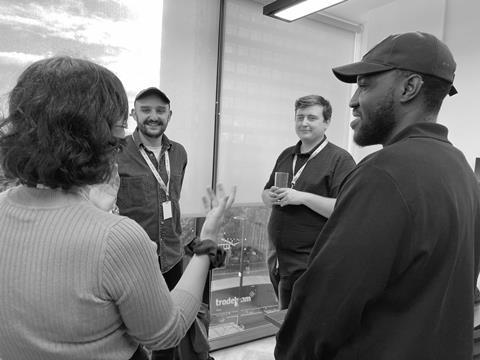
These biases have had real-world consequences that persist to this day. For example, women are 73% more likely to be seriously injured in a frontal car crash because crash test dummies were modelled on the average American man in 1973. More recently, the British Medical Association (BMA) highlighted that women’s lives were being put at greater risk during the Covid-19 pandemic due to ill-fitting PPE.
Further intensifying the issue, marginalised groups have historically been excluded from academic pathways, diminishing the change that they can effect within the discipline. While progress has been made, the fight for true equality goes on.
A key part of the sustainable development goals (SDGs) defined in the United Nation’s 2030 Agenda for Sustainable Development is building a more equitable world. These goals are supported by universal values grounded in international human rights that put equality and inclusion at the centre of its efforts. The universal values help the SDGs to be implemented with purpose and inspire real change. By ensuring diversity is always a key consideration for businesses, everyone can work together to ensure both universal values and SDGs are achieved.
Diversity and equal opportunity should be the baseline of any business
Notch Communications is a science marketing agency that was founded in 2011 by Peter Brown and Kate Whelan and has always prided itself on championing diversity throughout every level of the business. We use several of these goals to inspire our operational practices, including SDG 5: gender equality, SDG 9: industry, innovation and infrastructure, SDG 10: reduce inequalities and SDG 17: partnership for the goals.
Tackling inequalities
Inequality runs through every facet of society, so prevention must be at the forefront of any business. If not, you risk leaving a devastating blind spot in your business model. All areas need to be considered too, including race, age, gender, social background, disability and education. Ensuring diversity and equal opportunity shouldn’t be a ‘task’ or a ‘chore’ or a box to be ticked; it should be the baseline of any business.
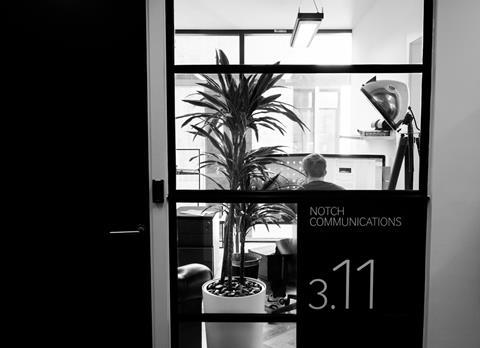
A company can begin to instil diversity inclusion from the start of its relationship with a future employee. By actively challenging one’s own implicit biases during the hiring process, you can ensure rapport with potential candidates takes off on the right foot. There are many tools and processes available to help hiring managers reduce bias, including software to eliminate personal details – such as names or addresses – that may influence decision making. Some companies also set their own internal diversity goals which they can reflect on after an interview to track how well they have met these objectives. Finally, it is also vital to openly and honestly discuss unconscious bias with all colleagues or implement bias awareness training across the workforce.
Another way to tackle inequalities in the workplace is by embracing some of the changes society has undergone since the Covid-19 pandemic began in 2020. With the mass adoption of remote working and more flexible working patterns, making adjustments for staff who have traditionally faced challenges in the workplace due to personal factors has significantly improved. These include but are not limited to parents with young children or staff members with disabilities. Now, it has become easier than ever to democratise the workplace and to ensure everyone feels comfortable and included.
The Notch Approach
Here at Notch, we’re committed to providing aspiring students and recent graduates with the opportunity to gain valuable industry experience. Doing so provides young people with real life experience in a competitive sector that can be challenging to infiltrate otherwise.

Being a smaller company also allows Notch to be flexible with the opportunities it provides for recent graduates joining the company. If a younger member of the team is eager to take on new challenges, their role can simply be expanded. Seniority matters less than meritocracy here.
A part of this has been to take on students for short-term paid placements or as part of sandwich years within their university studies. It’s also important that they are paid a full salary, compared to graduates with the same responsibilities. Taking this small step helps ensure that income isn’t a barrier to people seeking a way into this industry, enhancing social mobility and equity of opportunity.
Diversity also fosters more diversity, and inspires creativity. Having a wide range of points of view across the workplace means that you are shaping a more welcoming and inclusive environment. As well as staying true to the SDGs, this drives recruitment, staff retention and a healthier workplace.
Another aspect of Notch’s approach to being an inclusive employer and meeting the UN’s SDGs is our corporate social responsibility (CSR) committee. This is dedicated to working towards three internal goals that will benefit the wider community:
- Making science more accessible
- Supporting our home city (Manchester)
- Making Notch more green
These goals have been guided by the principles of equality set out in the SDGs. By supporting local charities and sustainability, Notch emphasises its commitment to a better tomorrow and attests to the values of the SDGs.
Creating brilliance for clients
Addressing inequalities should be a moral duty for all companies. However, it also makes sense from a purely business-oriented perspective.
In 2018, the Boston Consulting Group (BCG) found that companies with more diverse management teams have 19% higher revenue. Additionally, in 2017, a whitepaper from business software provider Cloverpop found that diverse teams outperformed individual decision-makers 87% of the time. These benefits are likely a reflection of the value of several different perspectives that come about when holding diversity to a high priority across the organisation.
Inequalities persist in all workplaces, in all sectors and science and technology is no exception. As the statistics above demonstrate, when voices are silenced it is to the detriment of us all: ideas not shared, innovations not created, opportunities not realised. This is why Notch strives to be different.
A more diverse future
Fostering a more diverse workplace is something that can fall off the radar for some businesses. But allowing that to happen risks creating an unwelcoming environment, which in turn can damage staff retention, revenue and opportunity.
By using the SDGs, Notch has built a framework to help foster a more diverse, open and comfortable workplace. We strive to give everyone the space to grow, no matter their gender, race, social background or personal circumstances. Notch ensures that it builds an environment where employees are comfortable voicing their thoughts about anything, from concerns to creative ideas. In staying true to the values of the SDGs we are empowering the generations of tomorrow. Both within and without the workplace, Notch is helping to inspire future industry leaders.

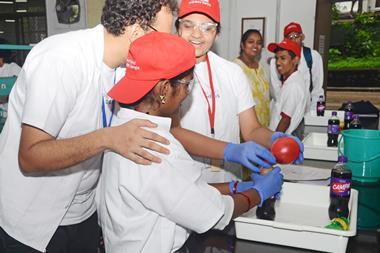
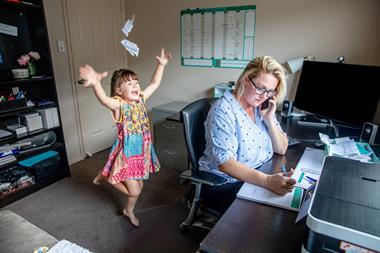
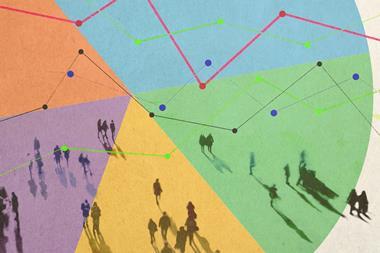





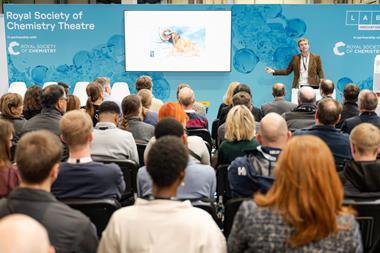



No comments yet